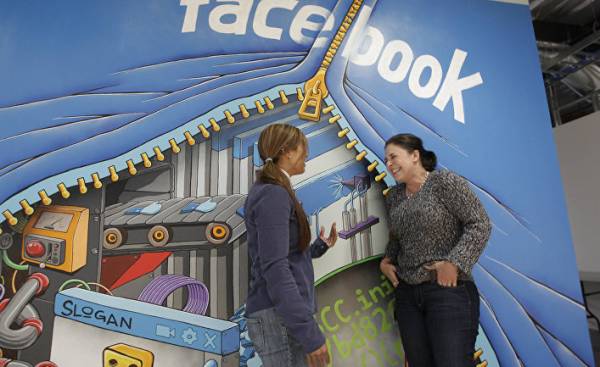
Frivolity, that is a frivolous attitude to serious or important things, to a large extent is a common social habit. We all sometimes allow ourselves frivolity. A careless attitude to the dramatic events, the harsh truth of life or the most important solutions sometimes works as a defense mechanism.
With special force this is manifested in the current turbulent and dangerous times, when the background of the loosening of the foundations of the world order and the political system we are seeing the elements of a tragicomedy. On the screens of our mobile phones, tablets and televisions constantly whirling and scurrying about in some meaningless cycle affecting its monstrous cruelty of the scene, as for example, the beheading of captives of ISIS (a terrorist organization banned in Russia — approx. ed.), followed by a completely absurd images, rather reminiscent of the parody.
Absurd, particularly evident in the penultimate tweet of the President of the United States, explicitly configured to become a world leader at least in this area. Using computer graphics, the tweet depicted as a tramp, like a man possessed by, jumped into the ring, sweeping from his path the referee and strikes on CNN, accusing the channel that he spreads about him false information.
In an environment of global tragicomedy and a dizzying succession of phenomena and events with a certain dose of frivolity is acceptable. At least in order to maintain mental health and not to get swept away by this mad stream.
But there are two forms of political and social frivolity that would have to cause our special concern. The first is the ease with which they are accepted or not accepted based on short-term party considerations or even smaller interests — decisions that are critical for the well-being of our countries and citizens, for their present and future. It is accompanied by bothersome messages and political chatter, often not carrying in itself any sense. The second amazing easiness is one with which our political language and social communication overstepped the boundaries between tragedy and parody, between, above what is, strictly speaking, impossible to make fun and a mockery or a joke as such. This lightness differs from satire because it does not contain any insights that could be useful for critical thinking and democracy.
Both varieties of political frivolity are growing along with the increasing influence of social networking and the reduction leaders. Strictly speaking, they are closely interrelated. So, certain politicians and media representatives both species exhibit different thinking about consumption, and bringing his audience with insults, ridicule and abuse of their opponents.
The US President once again uses and that and the other. This is reflected in how he makes decisions on topical issues (such as the exit from the Paris climate agreement, or the healthcare system in his own country), without taking into account the fundamental principles of state democratic politics, and in his dismissive attitude towards women, insulting minorities, in third countries, Islam, or all together through the night tweet, memes and rude attacks.
But he is not alone, as the bearers of this political frivolity are various figures, including left-wing views, who found in the tramp of his idol. So, as a result of the first form of frivolity, in the fire of fratricidal war and party and other irresponsible promotions, we are losing a valuable opportunity to collectively prepare for the challenges faced, and make something useful for future generations. The second direction of frivolity, which is all good, but no particular value of itself is not (because nothing is taken seriously until, yet will not affect us directly), leads to a weak erosion of those ethical principles which underpin our existence. The written and unwritten rules and principles, mainly carry the filth and opportunism that are inherent in almost everyone. Thus, we become even more insensitive to issues that require a certain amount of joint participation and ethical approach, and must be brought to the consciousness of the whole society. When everything becomes a farce and a farce, we are at risk of degeneration of a collective, especially if we encourage this from the top. Sometimes, in the face of this policy tragicomedy is a feeling that we have no choice but to laugh. As he wrote in a recent article, Manuel arias Maldonado (Manual Arias Maldonado), “not to cry, maybe we should laugh.” During stratification and social anxiety both varieties of frivolity are widely distributed and feed on each other. This is the path which we should avoid.
However, it seems that this winding footpath trump want to get us some Spanish politicians. In recent years, even based on the current rules of the Spanish policy is becoming incredibly frivolous in both the above varieties. And we are not talking about new or old policy, and the dominance of irresponsible, dogmatic, misguided and bad policy, which is not conducive to pluralism, to the saturation of the rich content of the discussions, but rather the opposite. New forms like social networks can promote the principles of tolerance, which is now shared by a significant part of contemporary Spanish society. But if they are in certain hands, then focus on the worst elements the policy of our country, which we had hoped to leave in the past.
As an example, let’s think about this unexpected decision of the current leadership of the Spanish socialist workers party (PSOE) to abandon support of the agreement on free trade between the EU and Canada. This decision demonstrates elements of political frivolity on the part of some managers, as the form — initially it was claimed in a tweet in response to another trolling, and content. It seems that this decision is more consistent electoral calculations than reasonable and significant arguments that keep the state party from the European consensus, not to mention undermining the authority of party cadres who have invested a lot of effort in the development agreement.
On the other hand, it is no coincidence that politicians are such easy flowing in the second type of frivolity, are usually hard-nosed dogmatists. Let’s think, for example, over the memorial, calling to send a particular person in the GULAG that symbolizes for the citizens of Russia and countries of Eastern Europe the same as Auschwitz and Buchenwald for the Jews. Thus, they represent Evil in some ordinary everyday occurrence, unlike Hannah Arendt (Hannah Arendt), which, speaking about the Nazi executioner Eichmann never tried making fun of him, so as not to dilute the issues that really mattered. To prevent a recurrence of the tragedy. For these politicians, extolling Stalin and admired Žižek (Zizek), frivolity, coupled with indiscriminate attacks on the enemy, without giving any serious arguments, are rather the mask that hides the mind, incapable of analysis and I bow to authoritarianism. They make you ask how democratic values they will teach you, and if you laugh, it will make it, pushing themselves, with a cold smile on her face. Strictly speaking, people know that there are things over which laugh, in spite of the obscene antics of the next villain, sometimes even senior.
Such frivolous politicians try to establish themselves with the help of likes, emoticons and hashtags; by censure so hated by their opponent, and finally, in the most uncompromising grassroots layers. But not on the basis of the positive aspects of their proposed policies, or the negative traits of that which they criticize. And certainly not because of their ability to lead those who think differently. We are not talking about how to convince. It is necessary to mobilize citizens to action. These politicians and journalists are as useful as a fire-worshipers on fire, causing instability and fragmentation in modern society. They are frivolous, but their mindlessness entails collective consequences. Although they use the phraseology of political fighters who have been advocating change, in the end, they despised to a specific person and his opinion, because they depend on the policy of the masses and the tension. Their impact falls in those democratic societies where there is a diversity of opinions and coordinated policy. A significant part of their influence, especially the most malicious, nevertheless it is necessary for us, as we participate in their game and humbly accept their political language.
We have entered a new era, where a significant part of the universally recognized norms and principles is in question, where there are new forms of communication against the background of insecurity and transformation, which will change our way of life. And then require new political and social leaders, able to work in the future, create community, and not just repeat well-known points. They should be able to reach agreement between the various political forces and not only to occupy a dominant position in one of the sections of the society. These new leaders must possess certain ethical principles, and even better — moral values. In a word, not frivolous people stuck to their mobile phones, who can’t see anything around and take only those that disappoint us, cause us the worst feelings and push us to each other.







